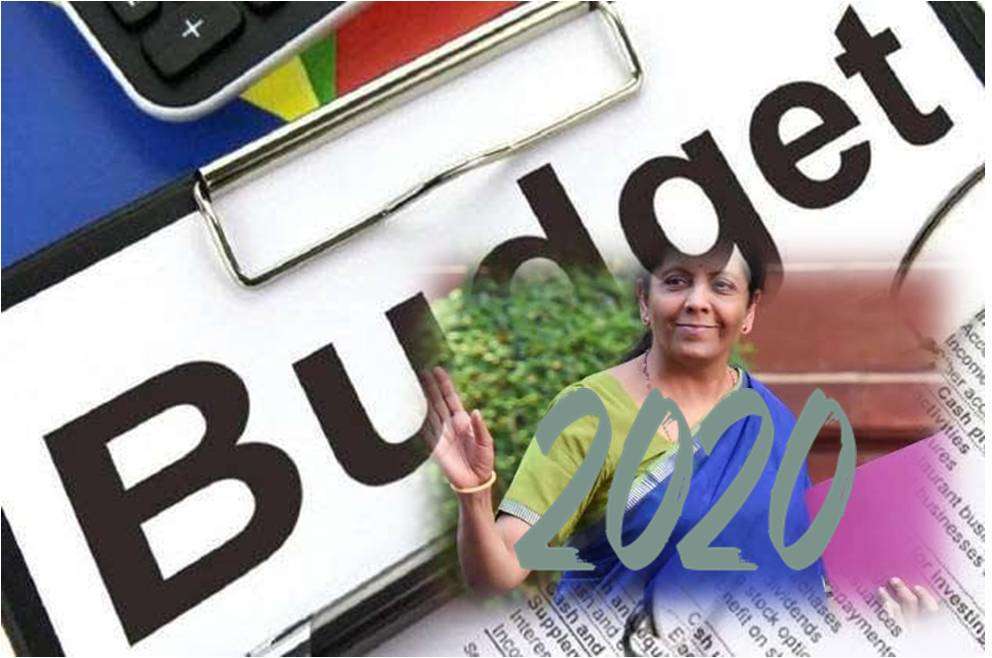BUDGET 2020 - Personal Income Tax and Affordable Housing get a Boost
Insurance for Bank Deposits raised from 1 Lakh to 5 lakh...
Tax Holiday for affordable housing developers...
India has moved on from a GDP of 4% in the 1950's to 7.4% in the period 2014-2019. This was probably the most optimistic statement given by Finance Minister Nirmala Sitharaman in her Budget 2020 speech this morning. The Longest ever Budget speech by any Finance Minister in India till date resulted in the Sensex crashing down by 1000 points. Sitharaman, in her speech had said that the budget declarations will have a positive impact on the stock market, but it crashed.
Six Things that the Budget has for an ailing economy
With the GDP at its 6 year low, the Finance Minister focussed on raising purchasing power by reducing Income Tax rates and boosting rural income. Those with a taxable Income below Rs 5 lakh will be exempt from paying taxes. The new proposed Income Tax slabs will have those between Rs 5-7.5 lakh as taxable income in the 10% slab. Taxable Income between Rs 7.5-10 Lakh will be taxed at 15%, while individuals with taxable income between Rs 10-12.5 Lakh will have to pay 20% as tax. The 25% slab is applicable for those with a taxable income between Rs 12.5-15 Lakh while those with taxable income above Rs 15 Lakh will fall in the highest tax slab of 30%. The above slabs will however be optional... read on...
Paradoxically, the new reduced personal income tax slabs are options and come with a dampner - 70 tax exemptions and deductions have been removed. These include the proposed removal of deductions under 80C, 80D and Standard Deduction. The tex break on contribution to National Pension Scheme by the employer (U/S 80CCD(2)) stands. So those tax payers who choose the new slabs, will have to forego exemptions and deductions.
Another positive in the budget, though it seems to have emanated from immense demand and something that was untouched for decades, is the increase in the limit of Bank deposit insurance. This had been a talking point in the last few months, with the Punjab and Maharashtra Cooperative Bank going bust, this concern was raised across the country and the FM did mention such a step. Insurance cover for Bank deposits has been raised from Rs 1 Lakh (1993) to Rs 5 Lakh (2020). Depositors with Banks will have no legal remedy apart from the insurance cover of Rs 5 lakh, which earlier was Rs 1 Lakh, even if their deposits exceed the amount. DICGC data says that at the end of the last fiscal, the number of registered depositors with DICGC stood at 2098 (Commercial Banks: 103; Cooperative Banks: 1,941, RRBs: 51 and LABs: 3).
Ex-Finance Minister P Chidambaram, showing skepticism on the budget, said that the budget has invariably not announced anything to indicate a spur in jobs and that the budget ideology reflects on that of the government, not believing in reforms. He added that the Finance Minister has outrightly rejected every idea in the Economic Survey.
In another positive, FM informed that income tax payers have risen by 6 milllion and the GST regime has reduced the monthly spend of an average household by 4%.
Sitharaman proposed a 16 point guideline for making India an aspirational economy, with the country now being the 5th largest economy in the world.
The Budget has allocated RS 63,000 Crore towards education. The government will start the Ind-Sat exam for promoting study in India and an online degree level program for the economically deprived. Rs 69,000 Crore has been allocated to the healthcare sector.
On the public transport front, the Finance Minister said that 100 more airports will be developed in the next 5 years, and 1,150 trains will run under the PPP mode. Four stations have been identified to be redeveloped with private participation. As a sop to the residents of Delhi, just before the Delhi elections, the finance minister proposed Rs 4,000 Crore allocation to solve the pollution problem in the capital.
The governments move to push through an aggresive disinvestment plan and asset monetisation programme has LIC and IDBI on the cards. Government intends to sell it part holding the Life Insurance Corporation of India. A stake in IDBI will also be sold to private investors.
Dividend Distribution Tax has been removed and now dividen shall be taxed at the hands of the receiver. Giving a boost to affordable housing, the Finance Minister proposed extending an additional Rs 1.5 Lakh tax benefit on interest paid on affordable housing loans, to March 2021. The FM also proposed a Tax Holiday for affordable housing developers.
Corporate tax for existing companies slashed to 22 per cent in order to give a boost to economy and shore up investments. Govt proposes 100 per cent tax concession to sovereign wealth funds on investment in infra projects. Moreover, concessional tax rate of 15 per cent extended to power generation companies.
To join us on Facebook Click Here and Subscribe to UdaipurTimes Broadcast channels on GoogleNews | Telegram | Signal



